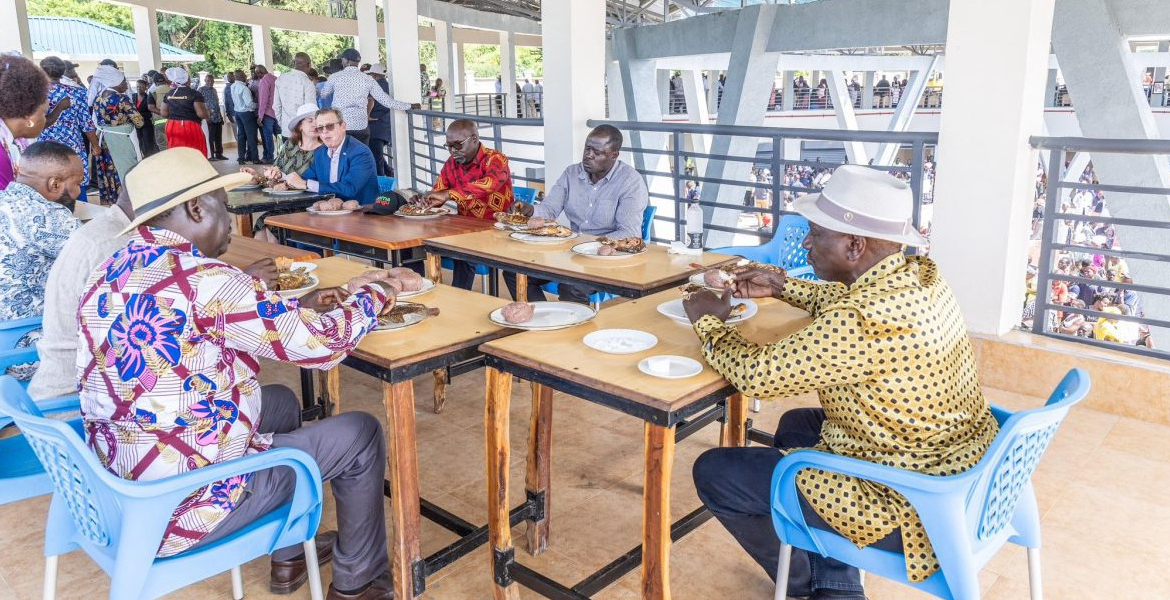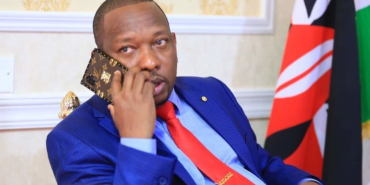Rift Deepens Between Ruto and Raila Over Key Policies

Barely three months after forging a landmark agreement aimed at easing political tensions, the alliance between President William Ruto and opposition leader Raila Odinga is showing signs of significant strain, with substantive policy disagreements threatening the stability of Kenya's broad-based government.
The Memorandum of Understanding, signed on March 7, 2025, had signalled a period of cooperation between the two political figures. However, growing rifts over key issues, including devolution, governance structures, and police reforms, are now casting doubt on the durability of this partnership. A primary point of contention revolves around Odinga's push for compensation for victims of police brutality during past protests.
Despite public apologies issued by Ruto and National Assembly Speaker Moses Wetang'ula during the National Prayer Breakfast on May 28, Raila maintains that these gestures are insufficient. He insists on tangible restitution for the bereaved and injured, emphasising the necessity of government action to facilitate national healing and unity.
"An apology is a good first step," Raila said, "but what about the lives lost? The government must compensate the bereaved and injured to help the nation heal and move forward in unity and peace."
Devolution has emerged as another significant area of discord. Raila is advocating for increased county funding, arguing that the current allocation falls short of adequately empowering regional governments. His call for at least 45 percent of national revenue to be directly channeled to counties poses a direct challenge to the Ruto administration, which has so far resisted such adjustments.
Further exacerbating the situation is the control of the Roads Maintenance Levy Fund, a billion-shilling resource currently managed by national agencies.
Raila is demanding its transfer to county governments, contending that local leaders are better equipped to manage infrastructure needs efficiently. He has called for the dissolution of the Kenya Urban Roads Authority and the Kenya Rural Roads Authority, asserting that these entities have centralised power to the detriment of counties. Additionally, Raila has voiced opposition to Ruto's initiative to construct markets and affordable housing at the county level, arguing that these are devolved functions best managed by governors.
"Let devolution work. Why are you building markets in counties? That is the job of governors. Why should you build affordable housing in counties? That is a devolved function," Raila remarked, questioning the administration's approach to economic development and sparking debate over the proper balance between national and county governance.
Raila has also found himself at odds with Members of Parliament concerning the National Government Constituency Development Fund (NG-CDF). Legislators, with the backing of President Ruto, are advocating for the fund to be enshrined in the Constitution, citing its successes in grassroots development. In contrast, Raila views this move as undermining county autonomy, arguing that such financial allocations should be administered through devolution structures rather than central government-controlled agencies.
Another point of contention stems from Ruto's proposal to revive Kenya's provisional administrative framework by expanding the powers of chiefs. The plan entails reinstating security coordination between chiefs and police officers under the newly operationalised National Government Administrative Police Unit. Critics fear this shift could signal a return to centralised governance, reversing reforms implemented in 2018 that curtailed chiefs' authority over law enforcement.
Raila has rejected the proposal, cautioning that it risks eroding democratic gains made in previous years. "Strengthening devolution should be the priority, not expanding administrative control through chiefs," he warns.
Despite Ruto and Raila's public displays of unity, the growing number of policy disagreements has fueled speculation about the future of their alliance. Embakasi Central MP Benjamin Gathiru, also known as Mejja Donk, has suggested that Raila's remarks during the Madaraka Day celebrations in Homa Bay caught Ruto's allies off guard.
"It is clear that the President cannot be advised. He always does what he wants, not what others think," Gathiru says. "If you saw their reactions, you would see that they never expected Raila to say those things. I can tell you that by the end of this year, all signs point to them going their separate ways."
ODM Secretary-General Edwin Sifuna further reinforces the scepticism surrounding the alliance, stating, "If any Kenyan is abducted by the police and hidden away, UDA and its leader, William Ruto, will have violated the registered agreement."
His remarks underscore opposition concerns that the Kenya Kwanza administration is reverting to authoritarian practices, undermining the spirit of inclusivity promised in the March pact.








Add new comment